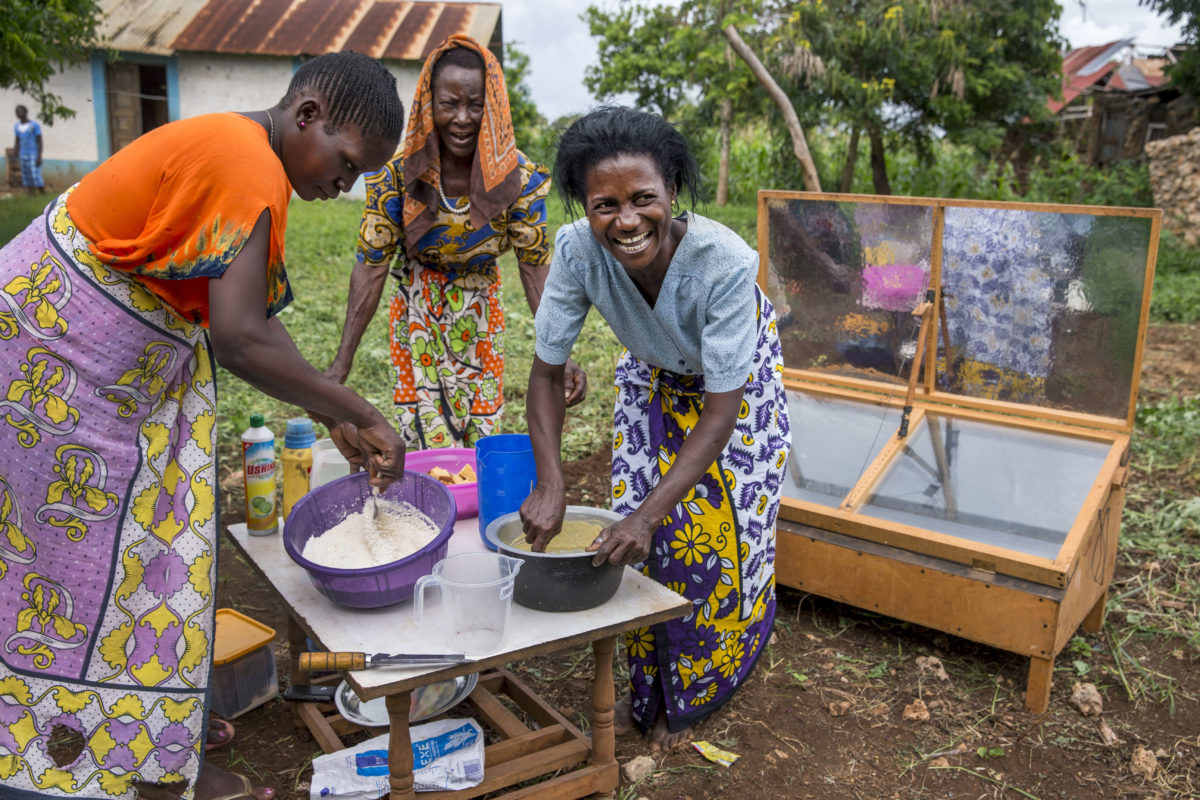Ensuring Women Have Access to Proper Nutrition Grows Their Power

Image Source: Jonathan Torgovnik, Getty Images, Images of Empowerment
By: Megan Deitchler, Initiative Director, Intake; Sandy Remancus, Initiative Director, Alive & Thrive; Blythe Thomas, Initiative Director, 1,000 Days
Every person has the fundamental human right to access safe, affordable, and nutritious foods, but women and girls are twice as likely to suffer from malnutrition as men and boys due to a combination of biological, social, and cultural factors. We must do better to change this reality. Ahead of this year’s International Women’s Day, 1,000 Days and our sister Initiatives at FHI Solutions, Alive & Thrive and Intake, are calling for greater action to improve the nutrition of women and girls worldwide.
We know that well-nourished women and girls are healthier, more productive, and more likely to finish school. Malnutrition is a barrier that keeps women from accessing their full potential, which reinforces women’s oppression in all aspects of their lives. Good nutrition and women’s empowerment go hand in hand. A more intentional focus that targets improving women’s’ and girls’ nutrition is critical to making concrete, cost-effective, and sustainable improvements to the status of girls around the world. Simply put – ensuring women have access to proper nutrition can help them grow their power. Consequently, gender equality and increasing women’s decision-making powers are crucial to overcome nutritional vulnerabilities and break the inter-generational cycle of malnutrition.
Good nutrition is an essential building block in our fight for gender equality, but our approaches thus far have been siloed. Considering the interlinks between a woman’s health and her ability to claim her agency, actors and service providers across health, social protection, agriculture, and women’s empowerment sectors must prioritize optimal nutrition for women in their own right. Failure to harness a nuanced approach to these interlinked issues, from the community level to the global, will continue to leave women behind.
Over the next two years, FHI Solutions will work hand in hand with our diverse and multi-sectoral allies, ranging from community organizations to government leaders, to galvanize global- and country-level momentum for a compelling Women’s Nutrition Action Agenda. Through this Action Agenda, we aim to:
- Advance women’s nutrition as a global development priority of major donors and in target priority low- and middle-income countries (LMICs)
- Inform and inspire more and better use of new and existing financing for nutrition on priority World Health Assembly nutrition targets (anemia, low birthweight, and exclusive breastfeeding) from target LMICs and donors
- Influence delivery platform gatekeepers in health, including primary health care / Universal Health Coverage platforms, as well as other sectors to integrate preventive nutrition interventions in target LMICs
- Advocate for the use of reliable, validated metrics, such as the Global Diet Quality Score, to track progress in achieving healthy diets for all, especially women and girls
Nutrition programming is an underleveraged tool in the fight to advance girls’ rights and empowerment. By leveraging targeted nutrition interventions as a key part of gender equality programming, women’s empowerment actors can give a cost-effective boost to their investments and move the world back closer to reaching Sustainable Development Goal 5 – SDG 5. We are committed to working together with critical partners, both inside the global nutrition community and beyond, as we build a multi-sectoral policy, advocacy, and communications effort to inspire national and international commitment to, and scaled-up investment for, women’s nutrition. We must ensure the nutrition and health of girls and women to fully support their ability to build vibrant lives of their own making.
